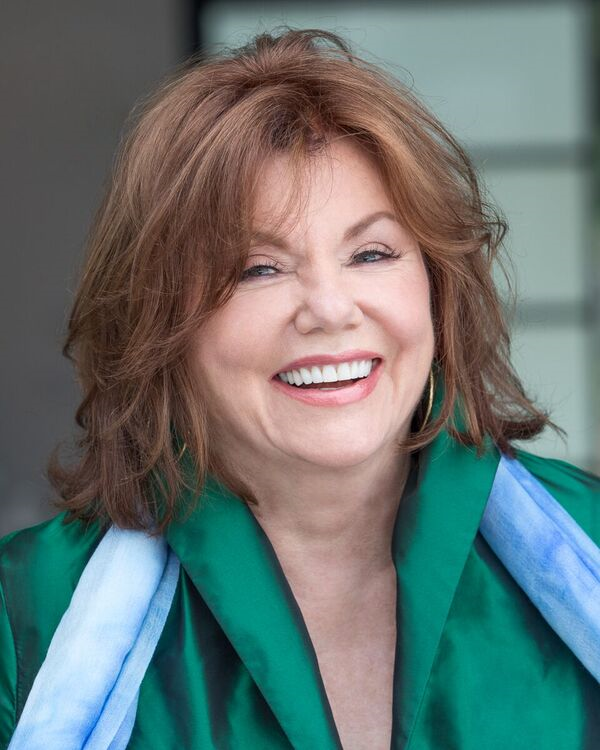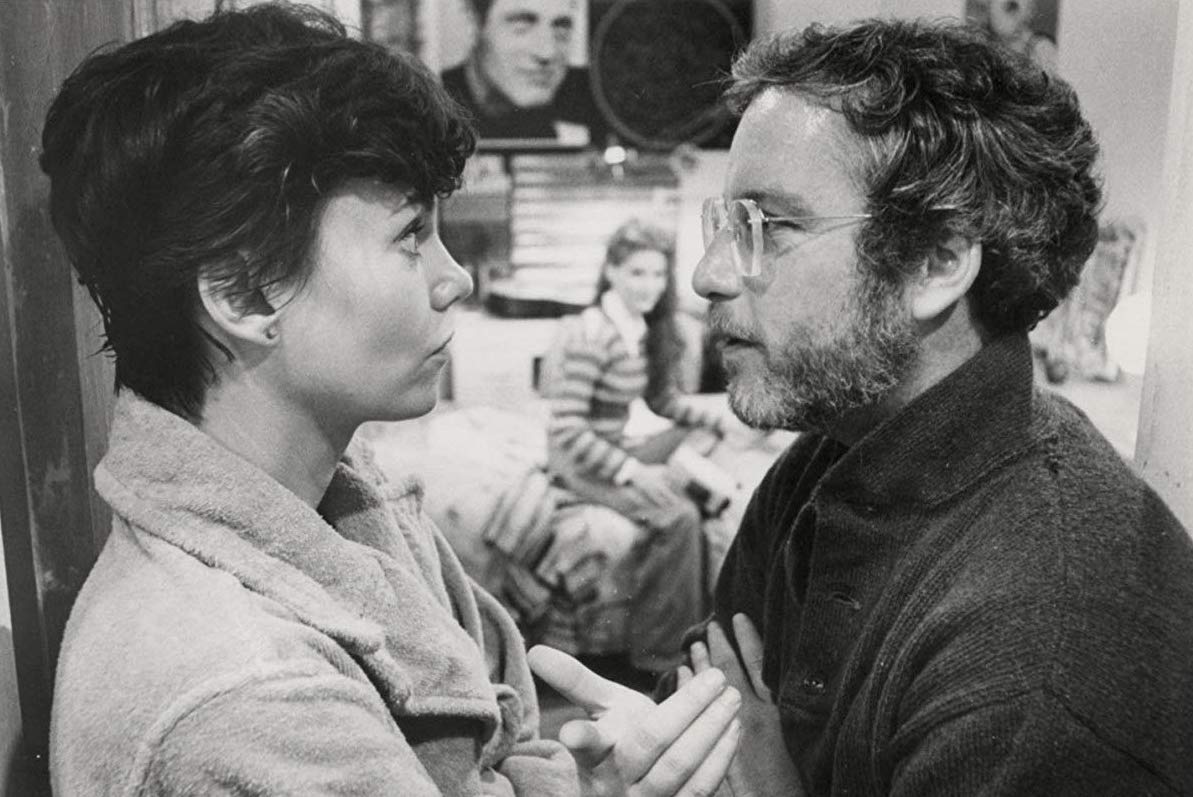Marsha Mason has had an extraordinary career in film, television, and theater over the past five decades — and she feels like she’s just getting started. She’s received four Academy Award nominations for her roles in “The Goodbye Girl,” “Cinderella Liberty,” “Only When I Laugh,” and “Chapter Two.” Also a two-time Golden Globe Award winner and Emmy winner, her recent TV credits have included “The Middle,” “The Good Wife,” “Madam Secretary,” and “Grace and Frankie.” She also has an extensive theater résumé, both as an actress and director. Add to the list: organic farmer and race car driver.
We talked to Mason about her life and career, how she constantly reinvents herself, and her professional stints outside the business. She also had a lot to say about Hollywood’s ageism and the #MeToo movement.
W&H: What’s it like being a woman in Hollywood today?
MM: It’s thrilling to be able to work on projects like “Grace and Frankie” with Jane [Fonda] and Lily [Tomlin]. The three of us are constantly telling each other how grateful we are to be working. Lily says it, and Jane says it all the time. There is still somewhat of a preconception of what women in their 70s and 80s are like.
I really feel like I’m in my prime and I even consider myself a late bloomer, partly because of the wealth of experience I have to bring to projects and to my life in general — whether it’s car racing or directing or acting or running an organic farm in New Mexico. I bring all that living to every project I work on and it’s thrilling.
W&H: What has changed the most since you first started out?
MM: Most of all, the camera has changed. Everything is digital and it’s very interesting to be able to shoot a movie on your phone. When I was making films every year — sometimes twice a year — we rehearsed. We had the luxury of working on the material and it was ready to be shot, which isn’t the case all the time the way movies are done now. Things have gotten more and more expensive. The most expensive movie I made was $26 million if it was even that, which was probably “Max Dugan Returns” in 1983. It was the first time I made a million dollars. That part hasn’t changed.
On “The Goodbye Girl,” I already had an Oscar nomination and [the producer] Ray Stark and my then-husband, Neil Simon, made the decision that Richard [Dreyfuss] should have top billing and not me. I made no money on that picture, partly because I was married to the writer. That was both a positive and a negative in terms of the business aspect of my career. Part of it was the studio’s fault because they had all that creative bookkeeping where pictures ostensibly never made a profit because actors didn’t get a chance to share in it and were asking for bigger salaries up front. But now there’s independent film, and that’s exciting, so hopefully, that world will be open to me as well.
W&H: You’ve had an incredible career, with Neil Simon as one of your most frequent collaborators, casting you in compelling roles. What impact did he have on your career?
MM: On the one hand, it was great because we made some wonderful pictures together, and we had a great professional relationship. But other people’s perceptions were different — either they were jealous of it in some instances or envious of it or they just thought that was all one could do.
In all fairness, we chose to work together because we had a family so I made that a priority. I come from another generation where the men were far more patriarchal and wanted a more traditional relationship. They want you home when they want you home. I think that younger men today understand a woman wanting to have an independent career. They participate more in the family dynamic, as well as being a father or a stay-at-home person. It’s great that all of that has moved forward.
W&H: You have appeared in so many shows recently: “Madam Secretary,” “The Good Wife,” and “The Middle,” to name only a few. I also really loved you as Arlene on “Grace and Frankie” — what was that particular experience like for you?
MM: It’s funny — I directed and acted in a reading at Bucks County Playhouse. We also did it one evening at The Players in New York City as a fundraiser. It was a play called “Outgoing Tide,” which was about a man who is facing Alzheimer’s. It was fascinating to have the opportunity to kind of delve into that aspect of getting older with the character of Arlene on “Grace and Frankie. To [“Grace and Frankie” co-creator] Marta Kauffman’s credit, she really does try to address what it’s like to be a full-blown woman.
W&H: What is important about the roles you are choosing these days?
MM: I want them to challenge me. I’m in talks right now to do a one-person show in Austin, Texas called “Ann,” where I will play Ann Richards, [who made history as the second female Governor of Texas]. It was a pet project of Holland Taylor’s [who starred in the show at Lincoln Center]. We’re in talks for that to happen now, and I’m very excited.
I really love the challenge of getting involved in a whole other personality and character. I also think it’s actually even more timely right now politically than when she did it.
W&H: I know your heart is in the theater. Can you please talk about “Talisman Roses” and some of the other theater projects you are working on?
MM: I directed that one. Tennessee Williams wrote “Talisman Roses” when he was 27. They found the play in a trove of papers in an attic somewhere about five or six years ago. The Tennessee Williams Festival takes place every year in Provincetown. This year the estate decided that they wanted to do this lovely piece. It’s about three generations of women, and there are early strains of Laura and Blanche and some of the other female characters that he later developed in the play.
Tennessee Williams’ sister Rose had just been put into an institution for schizophrenia when he was writing it, and in “Talisman Roses,” a woman comes out of the institution, though it has a more upbeat ending. I really loved directing it. Amanda Plummer was in it. The other two actresses were from a group called The Collective and they were also wonderful. The Collective is a group Amy Schumer is part of and Richard Masur produced it for the festival.
I also played a Russian crone at the beginning of the year in a Terrence McNally piece called “Fire and Air” with Douglas Hughes, and I’m curating a play reading series for the Bucks County Playhouse.
W&H: Is directing something you always wanted to do?
MM: Yes, I started doing it in the early ’80s when I directed an off-Broadway play called “Juno’s Swans,” which starred Mary Kay Place and Betty Buckley. Then I didn’t direct for a long time and I moved out to New Mexico. I directed a soap opera in the ’80s and a whole after school special called “Little Miss Perfect” about bulimia. I came back to the craft about six years ago.
W&H: What do you think of the #MeToo movement that’s sweeping through Hollywood and the rest of the world?
MM: I think it’s so needed and I love the women that are standing up and standing together. I think it’s fair and necessary. The pay issue is important but so is how one is treated and thought of.
There is a necessary learning curve that we all need to take. It’s isn’t just women against men. It’s women against women and men against men. Civility and respect are two of the most important things and we’re in an environment right now where those things are not necessarily considered necessary, and if anything, people have dropped it partly because the President has made a very bad example of behavior. We all have to take responsibility for how we behave.
W&H: Does ageism impact the types of roles that you’re getting?
MM: It’s still pretty tough. There just aren’t that many roles and there are quite a few of us who are talented and wanting to work and of a certain age from 60 into your 80s. Europe is not that way. The earlier movies were not that way. There were character people always, but it’s really tough [now], even in the theater.
“The Ferryman” is such a phenomenon. There are 21 actors on the stage with animals and a baby, and women of all ages, which is thrilling to see. “Apologia” [playing off-Broadway at Roundabout] with Stockard Channing [also stands out for offering] a wonderful woman’s role.
W&H: You’ve also been a car racer and an organic farmer. Can you talk a bit about these other pieces of your career?
MM: I moved out to New Mexico and bought 250 acres. I had no idea what I was going to do with it. I just started being a steward of the land and learned biodynamic farming. I was already into organic gardening when I had lived in California. I had a wonderful Chinese doctor there, too, who said if you ever decide to grow anything, you should really grow medicinal herbs.
To make a long story short, that’s what I did. I sold them to big companies and made products of our own. And when I went to London to do “The Prisoner of Second Avenue,” [a play which also starred Richard Dreyfuss], I knew I needed to make sure my immune system was strong. We were growing a signature herb which was anti-viral, anti-bacterial which was an immunity spray. I also wrote a book, “Journey: A Personal Odyssey,” with Simon and Schuster and went on a book tour and needed something for my throat, so we made something for the throat. We also developed a spray called The Chill Factor to calm down nerves because even actors get nervous — I know I do. I also worked with a master herbalist. And we did a body butter and lotion.
I think that every woman who drives a car should go to a racing school. I did that for seven or eight years in the ’80s. I made the runoffs five times. I had my own team and everything. I was in the Southern Pacific division. I had 12-14 races per season.
W&H: What are you most excited about right now?
MM: I was so impressed with Natalie Portman’s “Power of Women” speech. I watched it online, and I’m just really excited for all of us. For you, for me, for all the young women coming up.








